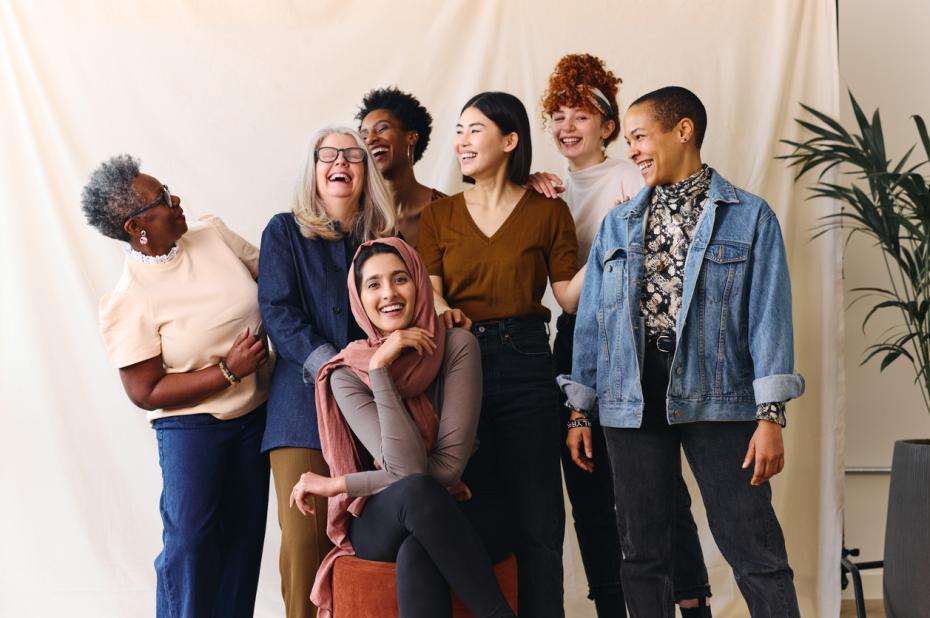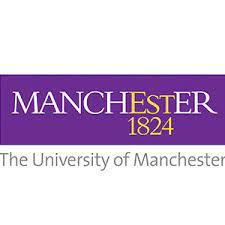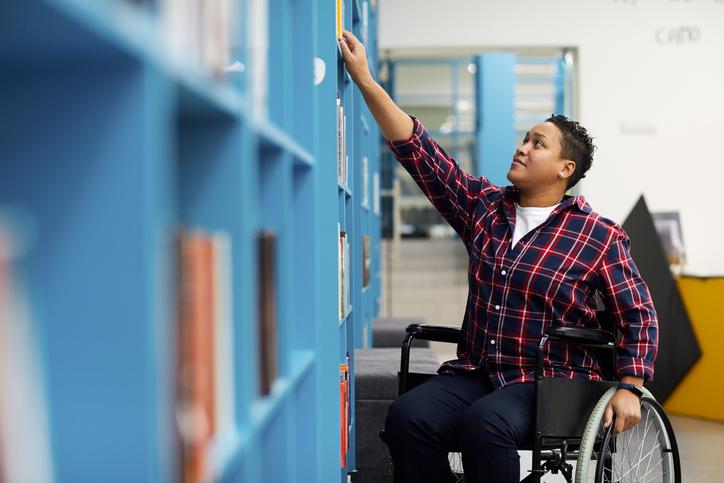
Weaving gold from EDI straw: an intersectional approach
You may also like
There is no single way to create an inclusive culture in higher education. Nor is there even an agreed and shared understanding of what that means. And in our experience, this makes sense. At The University of Manchester, our three-year equality, diversity and inclusion (EDI) strategy is focused on an intersectional approach that brings together three academic leads focused on race, religion and belief, gender and sexualities and disability. Despite having separate remits and responsibilities, we are all connected by the golden thread of intersectionality. The university has also signalled the importance of this work by appointing the vice-president for social responsibility to oversee it.
In this resource, we, the three University of Manchester academic leads for EDI, explain how we work together and learn from each other. We’re proud to say that our approaches have been recognised by charter marks for excellence in our specific areas of work.
Dawn Edge, academic lead for race, religion and belief, who led on the successful Race Equality Charter (REC) Silver Award in 2023
In 2017, I was appointed the first university academic lead for EDI. Together with my co-authors, we work collaboratively with our EDI and people and organisational development directorates, faculties, schools and departments within an integrated and strengthened governance structure to advance key EDI priorities. For example, alongside monthly meetings, we are members of the REC and Athena Swan teams and the university-level EDI committee.
Alignment with organisational strategic objectives ensures that EDI is “everybody’s business” and not solely the responsibility of a few EDI specialists. This explicitly intersectional approach has been a game changer. It has been integral to our success in achieving external recognition for our EDI work via Advance HE’s Athena Swan framework and the REC alongside other frameworks including Disability Confident and Stonewall. Importantly, this way of working facilitates the identification of both long-standing and hidden inequalities, which can occur with more siloed approaches.
The scale of the challenge to achieve our ambition of becoming a non-discriminatory, anti-racist organisation where everyone feels that they belong and can thrive is considerable and ongoing. In this context, agglomerated race/ethnicity data can obscure significant differences in experiences and attainment between and within groups as evidenced by our staff and student surveys. For example, while the number of academics from minority backgrounds applying for promotion has doubled since 2017, only 32 per cent reported being encouraged to apply for promotion, compared with 57 per cent of peers from non-minority backgrounds.
We have significantly narrowed the undergraduate degree awarding gap between white and “ethnic minority” students by 5 per cent to 8.3 per cent with an ambition to eliminate the gap. However, distances between groups remain marked, with consistently higher proportions of students from other/mixed and white backgrounds achieving “good degrees” (2.1 or first) compared with Asian and Black students. Although the proportion of Black undergraduates who achieve these has increased by 6 per cent in the past five years, they are least likely to achieve upper second or higher degrees.
Our honest reporting of these and other issues, including actions to address the under-representation of minority staff in senior professional services roles and improve recruitment, retention and progression of minority staff and students was commended in our REC submission. We have also invested in bespoke, innovative leadership and development opportunities for minority staff that address systemic barriers to achievement. Our Inclusive Advocacy Programme seeks to improve the research career pipeline and promote inclusive research cultures by connecting senior researchers (advocates) with talented research staff (participants) for a 12-month period. Meanwhile, our StellarHE programme focuses on leadership development and career progression for both academic and professional services staff. And reflecting our commitment to intersectionality, our 100 Black Women Professors Now initiative aims to address the under-representation of Black women in senior academic roles by enhancing the career paths for PhD students as well as early and mid-career, and senior colleagues. Our ambition is that, by 2027, we will have at least a 50 per cent increase in the representation of Black academics and researchers at all levels, up from 3.2 per cent lecturers and 0.6 per cent professors, with at least one-third female Black professors and Black readers.
On a personal level, I am especially proud to have led the team to become the first Russell Group university (and only the second higher education institution in the country) to achieve REC Silver. Alongside being the first Black woman professor in our university’s 200-year history, this ranks as one of my greatest academic achievements.
- Being Black in the academy
- The rainbow university
- Routes to improving disability support in higher education
Rachel Cowen, academic lead for gender and sexual orientation, who led on the Athena Swan Silver Award in 2024
I was appointed gender lead in 2019 to accelerate gender equality progress through the University’s Athena Swan charter work, with the role later expanding to include sexual orientation. This was my first university leadership role and it was a job share that signalled to me the institutional commitment to think differently about our culture and what leadership in HE looks like. Frankly, this was the only way I could step up to a leadership position as a part-time academic with childcare responsibilities.
Our work, recognised with an Athena Swan Silver Award in Jan 2024, includes increasing our binary sex data, showing parity in our overall student profile, in senior professional services roles, early career academic roles and on senior committees, including our senior leadership team. We have increased female representation for senior academics (42 per cent female) and professors (30 per cent female) and we are slowly narrowing the gender pay gap over time.
To achieve these goals, we expanded our diverse women’s leadership programmes including Aurora and 100 Black Women Professors Now. We are prioritising allyship and advocacy through our impactful LGBTQ+ ALLOUT network and thriving Women@Manchester network. These raise awareness of issues, challenge stereotypes and bias, influence inclusive policy and practice and provide staff with mutual support, professional development and mentoring opportunities. We’ve launched new policies, such as our flexible and hybrid working policy supporting better work-life balance, and aim to maintain academic career progression following extended leave through our academic returners policy. Through our international work, we are also able to share our experiences and challenges globally, especially during the Covid pandemic, and we are collaborating to develop gender equality frameworks to facilitate global progress.
However, we know we still have a lot of work to do including closing male student awarding gaps, addressing gender disparities within disciplines and ensuring that we have equally robust non-binary gender and sexual orientation data on a par with our sex data. Importantly, we are also focusing on our campus and culture so that everyone feels included, particularly people of other gender identities, and for our parents and carers. Examples of good practice that we will build on include the expansion of our parents and carers networks and carers fund, covering additional caring costs incurred by staff taking part in professional development and career profile-raising activity.
Jackie Carter, academic lead for disability, who led on our Disability Confident Leader status in 2023
One of my first tasks as the academic lead disability in our EDI strategy was to understand the lived experience of disabled staff and students. We collate and share our disability statistics, but it’s important for us to understand the impact that having a disability can have on our people, the barriers they face and the unique capabilities they bring to their roles. I commissioned an external needs analysis, focused on staff and postgraduate researchers, to identify the strengths and gaps. This report is currently being analysed and triangulated with our existing data and knowledge and will inform the action plan we are creating to make needed changes.
My second priority was starting a series of recorded conversations called “Let’s talk disability” (see episodes below). The aim of these is to host open and honest conversations with two guests: one senior leader and one disabled member of staff or postgraduate researcher. Recording and openly sharing these conversations enable us to collect a list of “one things” from both guests; the senior leader is asked what one thing they will commit to change while the disabled person shares what one thing they would like to see happen that would make a difference to their everyday experience at the university.
Our chief information officer and pro vice-chancellor for research have already made commitments to improve disabled people’s experiences. This has resulted in a senior-level commitment to improve the IT helpdesk experience and the PhD Supervisors Toolkit, in both cases addressing the needs of disabled people. This bank of conversations will also show our academic community what it is like to be disabled. The challenges and barriers, as well as the strengths and resilience, of disabled peers, will be highlighted in this way for the first time. I hope that disability will become as much a talking point as other protected characteristics, and the Let’s Talk initiative is now being adopted across all protected characteristics.
In January 2024 we were pleased to be named a Disability Confident Leader. We are one of only 13 UK universities to achieve this status, and one of only three in the Russell Group. Our commitment to disability inclusion is underpinned by and reflected in this scheme, and I am proud and honoured to share this space with my professional services colleagues.
I live with invisible disabilities and am very open about my own struggles with the challenges I face. I want to be able to bring compassionate leadership to this important role. My recognition in the Shaw Trust’s 2023 Disability Power 100 List as one of the top 10 voices in education makes me think I am doing something right.
As proud as we are to have received recognition in accreditation schemes and charter mark frameworks, we acknowledge that our work isn’t complete. And while there is no standard way to foster inclusivity in higher education, we’ve found that for EDI activities to create environments our staff and students deserve, long-term strategic approaches with intersectional teams and investment in schemes that move the needle are the best way to start.
If you would like advice and insight from academics and university staff delivered direct to your inbox each week, sign up for the Campus newsletter.
Additional Links
See our International Women’s Day spotlight for more advice and resources from women leaders in higher education.
For more resources on EDI work, see our spotlight on how universities can boost staff diversity.




